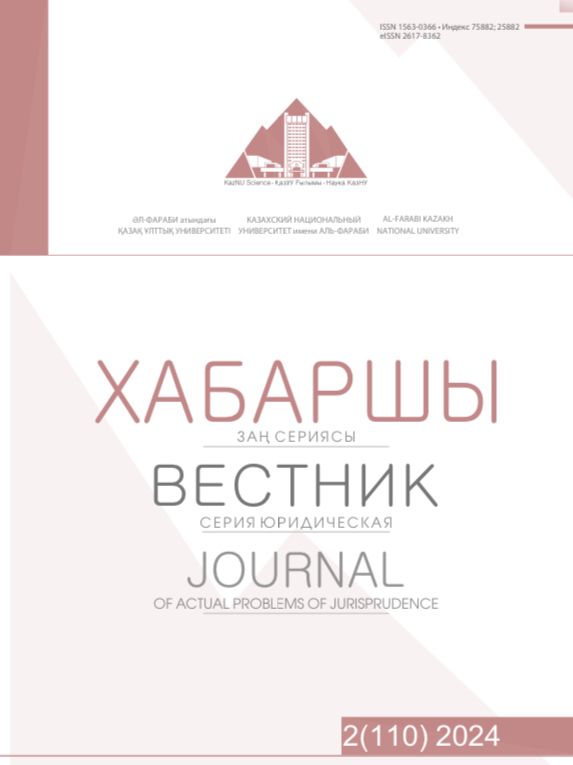FORENSIC LINGUISTIC EXPERTISE AS AN EXPERT COMPARISON OF LINGUISTIC STRUCTURES IN LEGAL TEXTS OF DIFFERENT JURISDICTIONS
DOI:
https://doi.org/10.26577/JAPJ2024-110-b-01Abstract
The objective of this study is to examine the linguistic features of legal texts from various jurisdictions in order to identify similarities and differences in their linguistic structures. The primary focus is on the role of forensic linguistic expertise in the process of analysing and interpreting such texts.
The research methodology involves a comprehensive analysis of linguistic data from court documents from various countries, taking into account grammatical, syntactic and lexical features. The methods employed include a qualitative comparison of linguistic constructions, an analysis of the frequency of use of terms, and the identification of specific terminological turns.
The results of the study will facilitate a more profound comprehension of the impact of linguistic features on the interpretation of legal texts, as well as the identification of potential issues associated with the translation and interpretation of court documents across diverse cultural and legal contexts. The data obtained will be beneficial for the advancement of methodologies pertaining to forensic linguistic expertise and for enhancing international legal collaboration.
This study was conducted as part of the scientific project funded by ZhTN АР19677520, which focuses on the forensic-linguistic parameters of linguistic offences in conflictogenic texts in Kazakh-language mass media.
Keywords: linguistic analysis, linguistic signs of crimes, expert opinion, linguistic research methods, analysis of legal terminology, principles of independence and objectivity of linguistic expertise.



